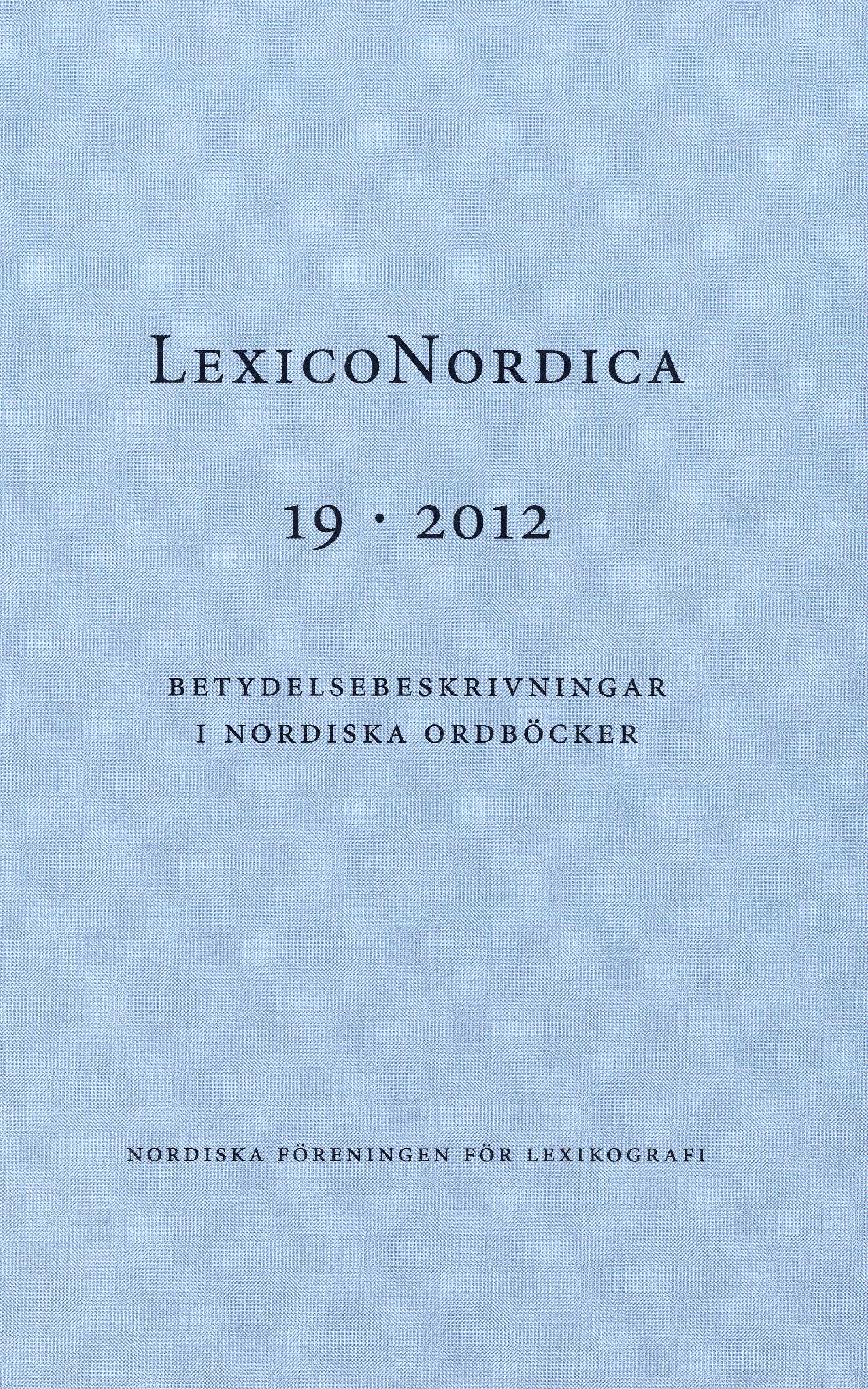Vem förvärvar, vem forskar och vem liknar Greta Garbo? Om fackspråklighet och könsbundna beteckningar i betydelsebeskrivningar
DOI:
https://doi.org/10.7146/ln.v0i19.18418Abstract
The aim of our study is to discuss whether the world described in
monolingual (Swedish) and bilingual (Finnish-Swedish) dictionary
entries represents the world outside the dictionaries (newspaper
corpus, Google search). On the one hand, we focus on the examples
given in the entries förvärva (to acquire) and forska (to do research).
The results show that the most frequent meaning of the verb förvärva
in the real world (a company buys another company) can be found
only in monolingual dictionaries, not in bilingual ones. Analysis
of the agents connected to the verb forska (to do research) reveals
that the use of the pronouns is equal with respect to both quantity
and quality in only one of the dictionaries (monolingual) studied.
On the other hand, we analyze how much and in which contexts
the pronouns hon and han (she and he) are used in the entries. The
quantitative analysis of the use of hon (she) and han (he) in the
example sentences shows that there are differences in the prevailing
practices in the entries. The qualitative analysis of the examples
shows that women are often portrayed in a stereotypic manner.
Downloads
Published
How to Cite
Issue
Section
License
LexicoNordica og forfatterne





